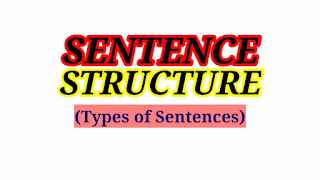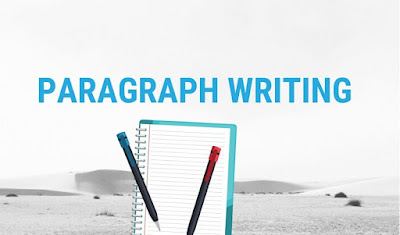CONJUNCTION
CONJUNCTION
The conjunction is a joining word. It is used for the purpose of joining words, phrases, clauses or sentences; as_
He bought fruit and sweets.
Ajmal is poor but he is generous.
Ahmed is hard working and dutiful.
Classes of Conjunctions:
Conjunctions are divided into two classes:
(1) Coordinating conjunctions.
(2) Subordinating conjunctions.
Co-ordinating Conjunctions:
Co-ordinate means of equal rank. A co-ordinating conjunction, therefore, joins together the clauses of equal rank, The chief co-ordinating conjunctions are:
And, but, or, nor, for, otherwise, also, either --- or, neither nor, stilt, only that, only, else, so, yet.
Co-ordinating conjunctions are sub divided into four classes:
(i) Cumulative Conjunction:
These add one statement to another; as_
We laid down our lives and we defended our country.
(ii) Alternative Conjunctions:
These imply a choice between the two alternatives;
You will give in or you will face the consequences.
(iii) Adversative Conjunctions:
These express contrast between two statements, as_
He is poor but he is generous.
He was insulted still he kept quiet.
He is old yet he earns his living.
(iv) Illative Conjunctions:
These show that one fact or statement is inferred from another; as_
She has been starving for her husband died.
It has rained somewhere, for the weather is pleasant.
He will certainly succeed, for he works hard day and night.
He was ill, so he could not go to college.
Subordinating Conjunctions:
These join subordinate clauses with principal clause.
The Chief Subordinating Conjunctions are:
Because, after, before, if, that, unless, though, although, as, when, where, while, till, lest, since, than, so that, so----that.
I had to go on foot because there was no bus.
After the rain was over, rainbow appeared across the sky.
Complete your work before you go home.
He will pass the exam. if he work hard.
He said that he would come.
You cannot succeed unless you work hard.
They do not believe him though he is innocent.
Please stay here till I return.
He works hard lest he should fail.
As you sow, so shall you reap.
He finished his work in time although he came late.
He knocked at the door when I was sleeping.
I break him after he had backed out of his promise.
CLASSIFICATION OF SUBORDINATING CONJUNCTION
Subordinate conjunctions may be classified according to their function:
Purpose:
The farmer sows the seed so that he may reap the crop.
He put on Warm clothes lest he should catch cold.
Result:
She was so weak that she could not walk.
We were so tired that we had to stay at home.
Cause:
I won the first prize because I worked hard.
Since he is innocent, we shall favour him.
As it was a sunny day, they went out for a walk.
Condition:
You cannot be forgiven unless you repent.
I shall come if you invite me.
Comparison:
She is taller than her elder brother (is)
Concession:
He earns his living though he is old.
Though he is my friend yet, I shall not give him undue favour.
Conjunctions used in pairs: (Correlative Conjunction)
Either____ or
Either she or her brother stole your book.
Neither---nor
He neither wrote nor came.
Both----and
Both Akram and Naveed are hostile to the whole class.
Though--yet
Though he is healthy, yet he begs.
Whether---or
We do not care whether you favour or oppose us.
Not only--but also.
Not only is he hard working but also honest.
Conjunction Classification with Examples.
A conjunction is a word that connects words, phrases, or clauses. Conjunctions are used to coordinate or join elements within a sentence. Conjunctions can be classified into three types: coordinating, subordinating and correlative conjunctions.
Coordinating conjunctions:
Coordinating conjunctions are used to connect words, phrases, or clauses of equal grammatical structure. Examples include "and," "or," "but," "for," "nor," "so," and "yet."
Example: I will have coffee and tea.
Subordinating conjunctions:
Subordinating conjunctions are used to connect clauses of unequal grammatical structure, such as a dependent clause and an independent clause. Examples include "after," "although," "because," "before," "if," "since," "that," "though," "unless," and "while."
Example: Although it's cold outside, I'm going for a walk.
Correlative conjunctions:
Correlative conjunctions are pairs of conjunctions that work together to connect words, phrases, or clauses. Examples include "both...and," "either...or," "neither...nor," "not only...but also," and "whether...or."
Example: I will either watch a movie or read a book tonight.
Sure, here's more information on conjunctions and their classifications:
Coordinating conjunctions:
Coordinating conjunctions are used to connect words, phrases, or clauses of equal grammatical structure. They are also known as "coordinators." Examples include "and," "or," "but," "for," "nor," "so," and "yet." Coordinating conjunctions can be used to connect items in a list, to add information, or to show contrast.
Example: I will have coffee and tea. (connects two items in a list)
Example: I am tired but I will go for a run. (adds information)
Example: The weather is nice today, yet I don't feel like going out. (shows contrast)
Subordinating conjunctions:
Subordinating conjunctions are used to connect clauses of unequal grammatical structure, such as a dependent clause and an independent clause. They are also known as "subordinators." Examples include "after," "although," "because," "before," "if," "since," "that," "though," "unless," and "while." Subordinating conjunctions indicate the relationship between the clauses and indicate the time, cause, reason, purpose, condition, and concession.
Example: Although it's cold outside, I'm going for a walk. (indicates a reason)
Example: After I finish my work, I will go to the gym. (indicates a time)
Correlative conjunctions:
Correlative conjunctions are pairs of conjunctions that work together to connect words, phrases, or clauses. They are also known as "correlatives." Examples include "both...and," "either...or," "neither...nor," "not only...but also," and "whether...or." Correlative conjunctions indicate a choice or a relationship between the words, phrases, or clauses.
Example: I will either watch a movie or read a book tonight. (indicates a choice)
Example: Not only is she smart, but she is also beautiful. (indicates a relationship)
In summary, conjunctions are words that are used to connect words, phrases, or clauses and they are classified into three types: coordinating, subordinating and correlative conjunctions. Coordinating conjunctions connect elements of equal structure, subordinating conjunctions connect clauses of unequal structure indicating a relationship, and correlative conjunctions are pairs of conjunctions that connect words, phrases, or clauses indicating a relationship or choice.
EXERCISE
Fill in the blank with appropriate conjunction:
1. He is stronger ___ his opponent.
2. He withdrew from the match___he was unfit.
3. She was selected___she was eligible.
4. I shall go___ I am invited.
5. You can travel by bus___ train.
6. _____you say so I must believe it.
7. Man proposes____ God disposes.
8. ______you sow, so shall you reap.
9. He saves money___ he should borrow it.
10. My friend___ I went to Islamabad.
11. You cannot go home___ you complete your work.
12. He says __ he is feeling well.
13. It is hoped____ it will rain soon.
14. She speaks fluently___ politely.
15. He will become rich___ he inherits a large property.
16. I see the children____ I am going to office.
17. He had gone ____ I came.
18. We remained at home ____ it was raining.
19. Work hard____ you should fail.
20. Please wait here for me _____I come.






Comments
Post a Comment